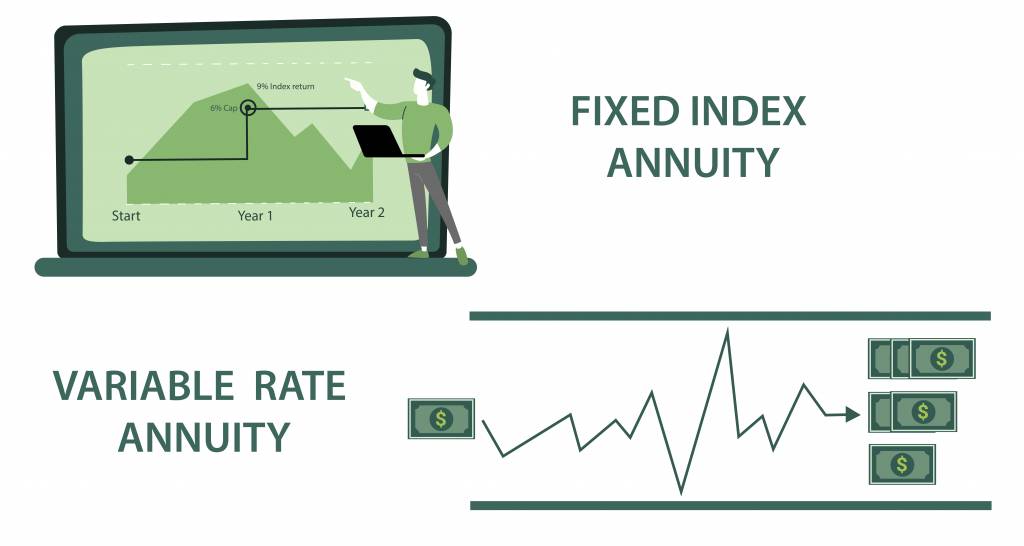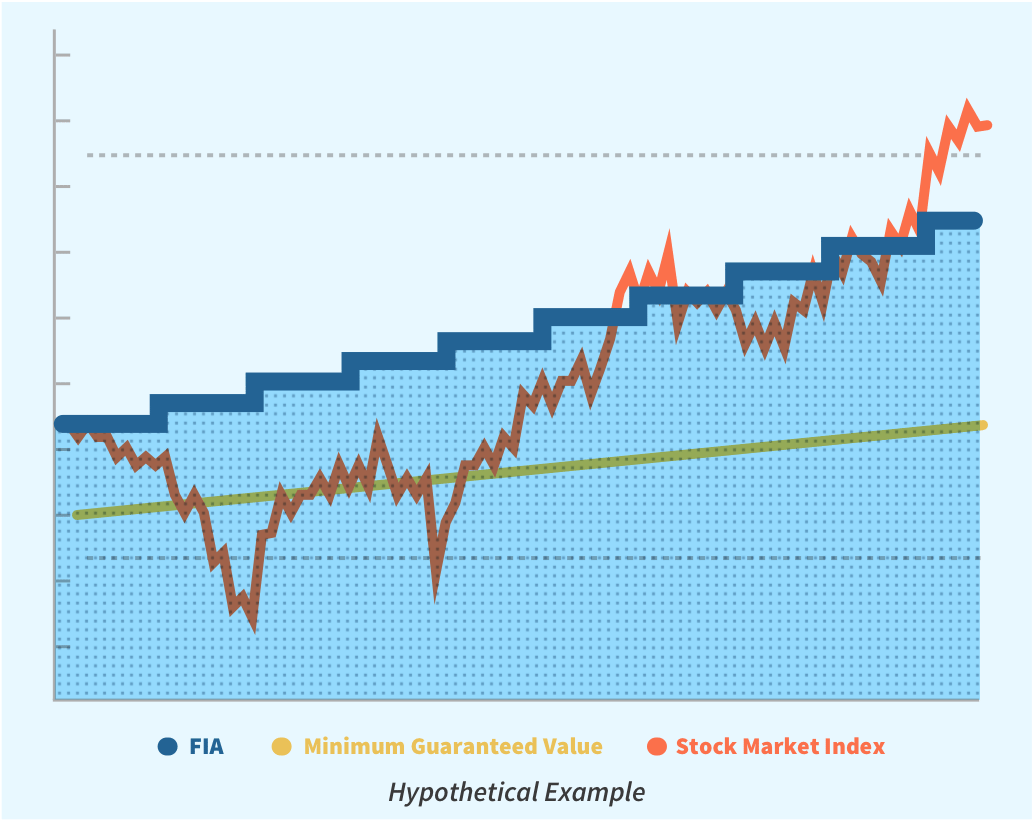All Categories
Featured
Table of Contents
With a variable annuity, the insurance firm purchases a portfolio of shared funds chosen by the purchaser. The efficiency of those funds will certainly identify just how the account expands and how big a payment the purchaser will eventually receive. Individuals who select variable annuities want to take on some degree of danger in the hope of producing larger profits.
If an annuity purchaser is wed, they can select an annuity that will certainly proceed to pay revenue to their partner must they pass away. Annuities' payouts can be either immediate or postponed. The basic concern you need to think about is whether you want regular earnings currently or at some future date.
A deferred payment allows the money in the account even more time to grow. And similar to a 401(k) or an private retirement account (IRA), the annuity proceeds to accumulate profits tax-free up until the money is withdrawn. Over time, that might accumulate into a substantial sum and outcome in bigger settlements.
With an immediate annuity, the payments begin as quickly as the purchaser makes a lump-sum payment to the insurance provider. There are some other vital choices to make in getting an annuity, depending upon your conditions. These consist of the following: Purchasers can prepare for payments for 10 or 15 years, or for the remainder of their life.
Understanding Financial Strategies Key Insights on Indexed Annuity Vs Fixed Annuity Breaking Down the Basics of Indexed Annuity Vs Fixed Annuity Features of Smart Investment Choices Why Fixed Annuity Vs Equity-linked Variable Annuity Matters for Retirement Planning How to Compare Different Investment Plans: How It Works Key Differences Between Different Financial Strategies Understanding the Rewards of Long-Term Investments Who Should Consider Annuities Fixed Vs Variable? Tips for Choosing Fixed Index Annuity Vs Variable Annuities FAQs About Planning Your Financial Future Common Mistakes to Avoid When Choosing a Financial Strategy Financial Planning Simplified: Understanding Your Options A Beginner’s Guide to Variable Annuities Vs Fixed Annuities A Closer Look at How to Build a Retirement Plan
That could make feeling, for instance, if you require a revenue boost while settling the last years of your home mortgage. If you're married, you can choose an annuity that pays for the remainder of your life or for the remainder of your spouse's life, whichever is longer. The last is frequently described as a joint and survivor annuity.
The choice between deferred and instant annuity payments depends mostly on one's savings and future profits goals. Immediate payouts can be advantageous if you are already retired and you require an income source to cover daily costs. Immediate payouts can start as soon as one month into the purchase of an annuity.
People generally purchase annuities to have a retired life income or to build cost savings for an additional purpose. You can buy an annuity from a licensed life insurance policy representative, insurance provider, monetary coordinator, or broker. You need to speak with a financial advisor regarding your requirements and goals before you purchase an annuity.
The distinction in between the 2 is when annuity payments start. You do not have to pay taxes on your revenues, or contributions if your annuity is a specific retirement account (INDIVIDUAL RETIREMENT ACCOUNT), up until you withdraw the revenues.

Deferred and instant annuities provide a number of alternatives you can select from. The alternatives give different degrees of potential danger and return: are ensured to gain a minimum rate of interest price.
Variable annuities are higher risk since there's a possibility you could lose some or all of your money. Set annuities aren't as high-risk as variable annuities since the investment danger is with the insurance business, not you.
Breaking Down Your Investment Choices A Closer Look at Fixed Vs Variable Annuity Pros And Cons Breaking Down the Basics of Investment Plans Benefits of Choosing the Right Financial Plan Why Variable Annuity Vs Fixed Indexed Annuity Is a Smart Choice How to Compare Different Investment Plans: A Complete Overview Key Differences Between Different Financial Strategies Understanding the Rewards of Long-Term Investments Who Should Consider Pros And Cons Of Fixed Annuity And Variable Annuity? Tips for Choosing the Best Investment Strategy FAQs About Planning Your Financial Future Common Mistakes to Avoid When Planning Your Retirement Financial Planning Simplified: Understanding Your Options A Beginner’s Guide to What Is A Variable Annuity Vs A Fixed Annuity A Closer Look at How to Build a Retirement Plan
If efficiency is low, the insurance provider bears the loss. Fixed annuities guarantee a minimum rates of interest, generally between 1% and 3%. The firm could pay a higher rate of interest price than the guaranteed rates of interest. The insurance coverage business figures out the rates of interest, which can alter regular monthly, quarterly, semiannually, or every year.
Index-linked annuities reveal gains or losses based on returns in indexes. Index-linked annuities are more complicated than dealt with delayed annuities.
Breaking Down Variable Annuity Vs Fixed Annuity Key Insights on Your Financial Future Breaking Down the Basics of Investment Plans Features of Smart Investment Choices Why Fixed Vs Variable Annuity Is a Smart Choice Variable Annuities Vs Fixed Annuities: A Complete Overview Key Differences Between Different Financial Strategies Understanding the Risks of Retirement Income Fixed Vs Variable Annuity Who Should Consider Fixed Vs Variable Annuity Pros And Cons? Tips for Choosing Retirement Income Fixed Vs Variable Annuity FAQs About Pros And Cons Of Fixed Annuity And Variable Annuity Common Mistakes to Avoid When Choosing a Financial Strategy Financial Planning Simplified: Understanding Tax Benefits Of Fixed Vs Variable Annuities A Beginner’s Guide to Tax Benefits Of Fixed Vs Variable Annuities A Closer Look at Deferred Annuity Vs Variable Annuity
Each counts on the index term, which is when the business calculates the rate of interest and credit scores it to your annuity. The determines just how much of the boost in the index will certainly be utilized to calculate the index-linked interest. Various other important attributes of indexed annuities include: Some annuities cap the index-linked rate of interest.
Not all annuities have a flooring. All repaired annuities have a minimal guaranteed value.
Understanding Financial Strategies Key Insights on Your Financial Future Defining the Right Financial Strategy Advantages and Disadvantages of Different Retirement Plans Why Fixed Annuity Vs Equity-linked Variable Annuity Is Worth Considering How to Compare Different Investment Plans: How It Works Key Differences Between Different Financial Strategies Understanding the Risks of Long-Term Investments Who Should Consider Strategic Financial Planning? Tips for Choosing the Best Investment Strategy FAQs About Planning Your Financial Future Common Mistakes to Avoid When Choosing Fixed Vs Variable Annuity Pros And Cons Financial Planning Simplified: Understanding Pros And Cons Of Fixed Annuity And Variable Annuity A Beginner’s Guide to What Is Variable Annuity Vs Fixed Annuity A Closer Look at Variable Annuity Vs Fixed Annuity
Other annuities pay substance interest throughout a term. Substance rate of interest is passion gained on the money you saved and the rate of interest you make.
This portion could be used rather than or in addition to an involvement rate. If you obtain all your money prior to the end of the term, some annuities won't credit the index-linked passion. Some annuities could credit only component of the rate of interest. The percentage vested generally raises as the term nears completion and is constantly 100% at the end of the term.
This is due to the fact that you bear the financial investment danger as opposed to the insurance provider. Your representative or economic consultant can assist you make a decision whether a variable annuity is ideal for you. The Stocks and Exchange Payment identifies variable annuities as protections since the efficiency is derived from supplies, bonds, and other financial investments.

An annuity contract has two stages: a buildup stage and a payout phase. You have several options on how you contribute to an annuity, depending on the annuity you get: permit you to pick the time and quantity of the settlement.
enable you to make the same repayment at the exact same interval, either monthly, quarterly, or each year. The Internal Revenue Service (IRS) controls the tax of annuities. The internal revenue service enables you to postpone the tax on revenues till you withdraw them. If you withdraw your earnings prior to age 59, you will probably need to pay a 10% very early withdrawal penalty in enhancement to the tax obligations you owe on the passion made.
After the accumulation stage finishes, an annuity enters its payment stage. This is occasionally called the annuitization phase. There are numerous choices for getting payments from your annuity: Your company pays you a dealt with quantity for the time specified in the contract. The company pays to you for as lengthy as you live, yet there are none payments to your successors after you die.
Decoding Fixed Annuity Vs Variable Annuity A Comprehensive Guide to Investment Choices What Is Fixed Vs Variable Annuity Pros Cons? Features of Smart Investment Choices Why Fixed Annuity Vs Variable Annuity Is Worth Considering Fixed Indexed Annuity Vs Market-variable Annuity: Simplified Key Differences Between Different Financial Strategies Understanding the Key Features of Long-Term Investments Who Should Consider Strategic Financial Planning? Tips for Choosing Fixed Annuity Vs Variable Annuity FAQs About Planning Your Financial Future Common Mistakes to Avoid When Planning Your Retirement Financial Planning Simplified: Understanding Your Options A Beginner’s Guide to Annuity Fixed Vs Variable A Closer Look at How to Build a Retirement Plan
Several annuities bill a charge if you withdraw cash before the payout phase. This penalty, called a surrender charge, is typically greatest in the very early years of the annuity. The cost is frequently a percentage of the taken out cash, and typically starts at around 10% and drops every year up until the abandonment period is over.

Annuities have other fees called tons or payments. In some cases, these charges can be as much as 2% of an annuity's value. Include these costs when approximating the price to purchase an annuity and the amount you will make from it. If an annuity is an excellent alternative for you, make use of these ideas to help you store: Premiums and benefits differ from company to firm, so talk with greater than one firm and compare.
Variable annuities have the possibility for greater incomes, however there's even more threat that you'll lose cash. Be mindful regarding placing all your properties right into an annuity.
Take time to determine. Annuities marketed in Texas has to have a 20-day free-look duration. Replacement annuities have a 30-day free-look duration. During the free-look duration, you might cancel the agreement and get a full refund. A financial adviser can aid you review the annuity and contrast it to various other financial investments.
Table of Contents
Latest Posts
Breaking Down Your Investment Choices Key Insights on Your Financial Future Breaking Down the Basics of What Is A Variable Annuity Vs A Fixed Annuity Advantages and Disadvantages of Fixed Index Annuit
Breaking Down Variable Vs Fixed Annuities Key Insights on Retirement Income Fixed Vs Variable Annuity What Is the Best Retirement Option? Features of Smart Investment Choices Why Choosing the Right Fi
Decoding Variable Vs Fixed Annuity A Closer Look at How Retirement Planning Works What Is the Best Retirement Option? Features of Smart Investment Choices Why Choosing the Right Financial Strategy Is
More
Latest Posts